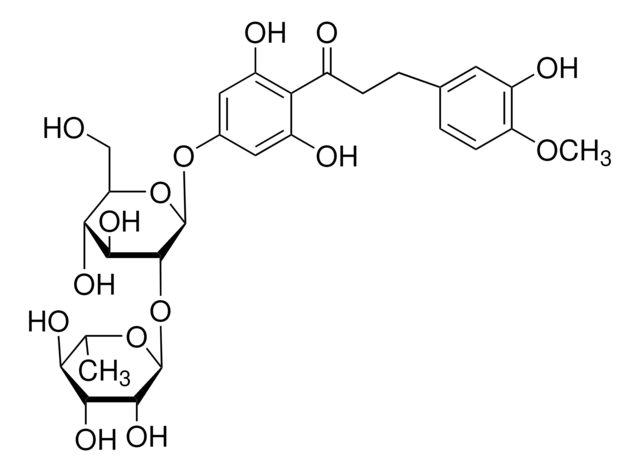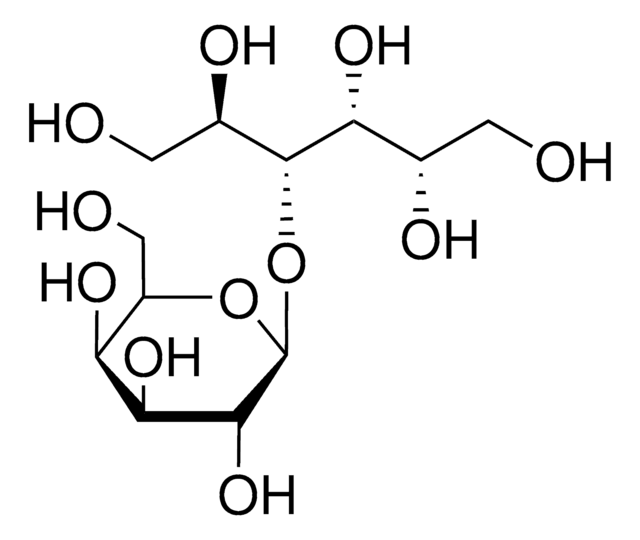90984
Sucralose
analytical standard
Synonyme(s) :
4-chloro-4-désoxy-α-D-galactose de 1,6-dichloro-1,6-didésoxy-β-D-fructofurannosyle, E955, Trichlorosucrose
About This Item
Produits recommandés
Qualité
analytical standard
Niveau de qualité
Pureté
≥98.0% (HPLC)
Durée de conservation
limited shelf life, expiry date on the label
Technique(s)
HPLC: suitable
gas chromatography (GC): suitable
Application(s)
cleaning products
cosmetics
food and beverages
personal care
Format
neat
Chaîne SMILES
OC[C@H]1O[C@H](O[C@]2(CCl)O[C@H](CCl)[C@@H](O)[C@@H]2O)[C@H](O)[C@@H](O)[C@H]1Cl
InChI
1S/C12H19Cl3O8/c13-1-4-7(17)10(20)12(3-14,22-4)23-11-9(19)8(18)6(15)5(2-16)21-11/h4-11,16-20H,1-3H2/t4-,5-,6+,7-,8+,9-,10+,11-,12+/m1/s1
Clé InChI
BAQAVOSOZGMPRM-QBMZZYIRSA-N
Vous recherchez des produits similaires ? Visite Guide de comparaison des produits
Description générale
Application
- Commercial sugar-free products such as Splenda and Red Raspberry Diet Rite beverage using high performance anion-exchange (HPAE) chromatography coupled with pulsed amperometric detection (PAD).
- Water and beverage samples using liquid chromatography/time-of-flight mass spectrometry (LC/TOF-MS).
Actions biochimiques/physiologiques
Conditionnement
Code de la classe de stockage
11 - Combustible Solids
Classe de danger pour l'eau (WGK)
WGK 2
Point d'éclair (°F)
Not applicable
Point d'éclair (°C)
Not applicable
Faites votre choix parmi les versions les plus récentes :
Déjà en possession de ce produit ?
Retrouvez la documentation relative aux produits que vous avez récemment achetés dans la Bibliothèque de documents.
Les clients ont également consulté
Notre équipe de scientifiques dispose d'une expérience dans tous les secteurs de la recherche, notamment en sciences de la vie, science des matériaux, synthèse chimique, chromatographie, analyse et dans de nombreux autres domaines..
Contacter notre Service technique












